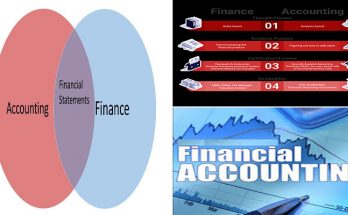Financial accounting is the process of recording, classifying, and summarizing financial transactions to generate financial reports that provide insight into a company’s financial performance. The financial information produced by accounting is critical for businesses to make sound and informed decisions. In this article, we will explore the importance of financial accounting for business decision-making.
1. Tracking Financial Performance
Financial accounting provides information about a company’s financial performance over a given period. It enables businesses to track revenue and expenses, assess profitability, and understand key financial ratios such as return on investment and debt-to-equity ratio. This information helps businesses identify areas of strength and weakness and make data-driven decisions about investing, financing, and operations.
2. Budgeting and Forecasting
The financial information generated by accounting provides insights that help businesses develop effective budgets and forecasts. By analyzing past financial performance, businesses can predict future trends and adjust their operations and finances accordingly. Accurate budgeting and forecasting enable businesses to allocate resources, plan for contingencies, and seize opportunities.
3. Compliance and Regulatory Requirements
Businesses have a legal obligation to comply with financial reporting and accounting regulations. Financial accounting ensures that businesses meet these requirements by accurately recording financial transactions and generating reports that comply with generally accepted accounting principles (GAAP). Compliance with these regulations helps businesses avoid legal consequences and reputational damage.
4. Attracting Investors and Creditors
Investors and creditors often rely on financial statements to evaluate a company’s financial health and determine whether to invest or lend money. Accurate financial statements demonstrate a company’s financial stability, creditworthiness, and growth potential. By providing comprehensive and transparent financial reports, businesses can attract investment and finance growth opportunities.
5. Facilitating Decision-Making
A vital function of financial accounting is to provide information that supports decision-making by business leaders. Financial statements enable businesses to evaluate the costs and benefits of various options, such as investing in new technology, expanding operations, or acquiring a new company. By providing data that informs strategic decisions, financial accounting helps businesses achieve their long-term goals and vision.
Financial accounting plays a critical role in helping businesses make informed decisions about their operations, investments, and finances. By generating insightful financial reports, facilitating budgeting and forecasting, ensuring compliance with regulations, attracting investors and creditors, and supporting decision-making, financial accounting provides businesses with the tools they need to succeed in a competitive market. For businesses looking to achieve financial success, prioritizing financial accounting and reporting is essential.





